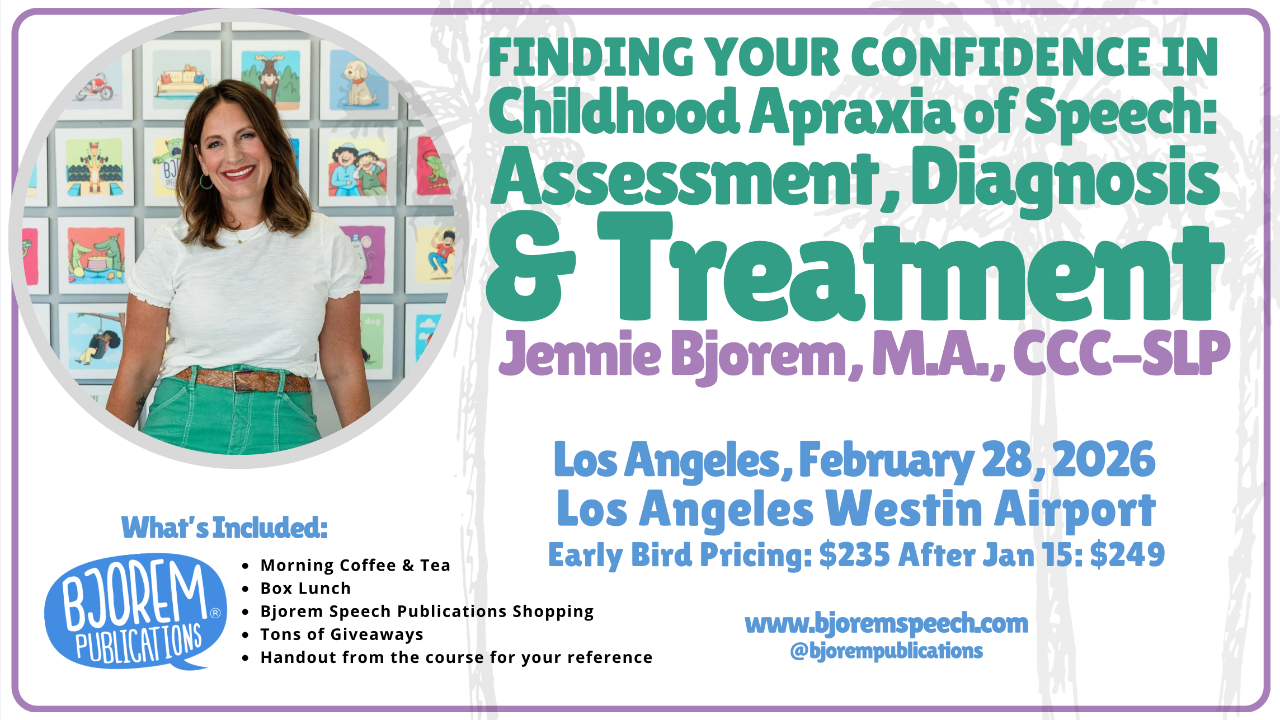Frequently Asked Questions
- This course contains intermediate level content appropriate for SLPs and SLPAs who support children with childhood apraxia of speech.
- The cost of the course (plus food and other exclusives) is for early bird is $235. After January 1, 2026 rate changes to $249.
Can I get CEUs for this course?
- ASHA CEUs? No. We will provide a certificate for attendance for PDH. Don't know the difference between CEUs and PDHs? Read our blog here
- Unfortunately we cannot offer a group discount at this time.
- 8:15-8:45 am | Check-in
- 9:00am - 10:00 am | 4 Motor Speech Classifications, Characteristic Identification Practice
- 10:00 - 10:15 am | Morning break
- 10:15 - 12:00 pm | Informal Assessment and Diagnosis
- 12:00-1:00 pm | Lunch Buffet
- 1:00 - 2:30 pm |Target Selection, CAS Approaches with a special focus on DTTC, Principles of Motor Learning, Cueing Techniques
- 2:30-2:45 pm | Afternoon break
- 2:45 - 4:30 pm | Apraxia Intervention Tips and Tricks, Literacy, Case Study
- Morning coffee and tea
- Box lunch
- Yes, we have a hotel block at The Westin LAX airport with a discounted room rate of $159 per night.
- Refunds are not available; however, you may transfer your ticket to a colleague.


